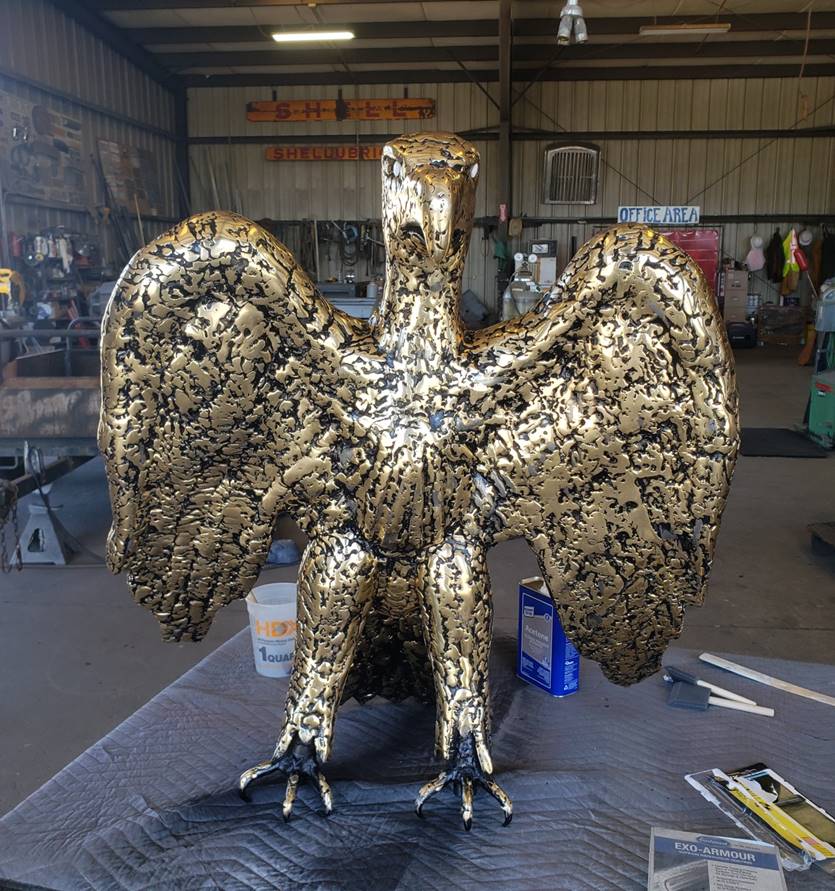
The Khobar Towers Eagle
|
Vietnam
Veteran Steve Trammell, Corning, California, was moved to honor and remember
military heroes. In 1992, Trammell created his first brass eagle, which was
named "In the Belly of the Eagle." The sculpture honors fallen Vietnam soldiers.
Today, Trammell has a series of six eagle sculptures. He was inspired by the
eagle symbol of the U.S. National Defense Service Medal and so his sculptures
take on a similar look. Trammell
was a U.S. Army combat soldier in the late 1960s. He witnessed first-hand the
tragedy of the Vietnam War and the tremendous loss of human life, including that
of friends. Trammell refers to the Vietnam War as "his war" and will
explain that while he wasn't wounded, he nearly died from malaria contracted in
the jungle. He is grateful for the helicopter pilot that risked his own life to
dip into the jungle to pull Trammell's almost lifeless body out. A few years
ago, Trammell also had major surgery to remove a tumor, a result of Agent
Orange, on his left knee. "When
I was creating the first eagle sculpture, I was able to release a lot of pain
from my own experiences in Vietnam. For me, these eagles are the perfect
way to honor and remember all those who made the ultimate sacrifice," says
Trammell. After
finishing his first sculpture, Trammell continued on. The second in the series
is dedicated to the 52 U.S. Elite Special Forces lost in Mogadishu,
Somalia, during "Black Hawk Down" in October 1993. The
third brass eagle stands proudly at five feet tall with spread tail feathers
honoring the fallen Army, Air Force, Navy and Marines personnel lost in the
Korean War during 1950-1953. The
fifth eagle Trammell created honors his family friend Airman 1st Class Joshua
Woody and 19 others of the U.S. Air Force's 440th Wing (Provisional) who
were killed when a truck bomb exploded near building 131 at Khobar Towers in Saudi
Arabia on June 25, 1996. |

KHOBAR TOWERS
EAGLE
In memory of A1C Joshua
Woody and Eighteen others
Completed and dedicated in
2003
The Khobar Towers Eagle is now on display at the Air Force Enlisted Heritage Museum.